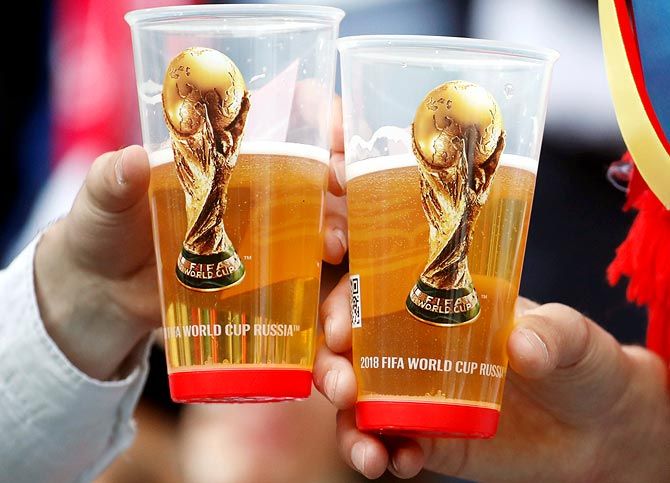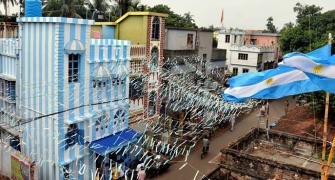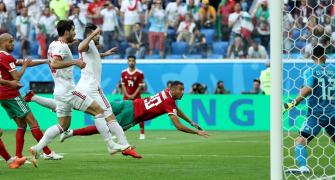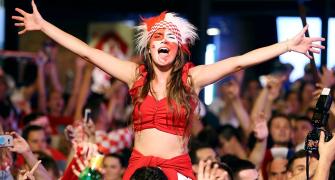
Soccer fans craving a Kit Kat, Snickers or Bounty snack at Russia's World Cup soccer stadiums need to do a bit of lateral thinking to get their chocolate fix.
For FIFA rules protecting the sponsors and partners of global soccer's governing body means that the branding of non-sponsors is strictly policed inside all official venues.
But stripped of their wrappers, Russia's stadium vending machines are brimming with "anonymous" snacks.
So if a hungry fan selects "chocolate with crispy wafer," a Kit Kat will appear, while it is not hard for them to guess the brands behind a "chocolate bar with peanut caramel" or snack labelled "chocolate with coconut".
Mars, the maker of Snickers and Bounty, told Reuters it does not operate the vending machines but follows the law and FIFA rules, adding it was "happy that thousands of consumers have the opportunity to enjoy the outstanding taste of our chocolate while watching the number one football competition."
Meanwhile, Kit Kat manufacturer Nestle said it recognised the organisers' policies and had no further comment.
World Cup organisers have gone to great lengths to keep unaffiliated firms out of sight, such as concealing the brand names on the front and back of LG television monitors in the press facilities with black tape.

FIFA said the sale of products inside stadiums follows a procedure that has been in place at previous competitions and these measures also affect the 32 national soccer teams, from the clothes they wear to the bottles they drink from.
Teams and their delegates are "expressly prohibited from bringing the beverage products of competitors of The Coca-Cola Company or Anheuser-Busch InBev" into stadiums, dressing rooms, media centres and interview rooms, FIFA rules say.
Coca-Cola is a FIFA partner, while Anheuser-Busch InBev is a tournament sponsor.
The only way to get around the restrictions is to pour drinks produced by other brands into FIFA-provided containers.











